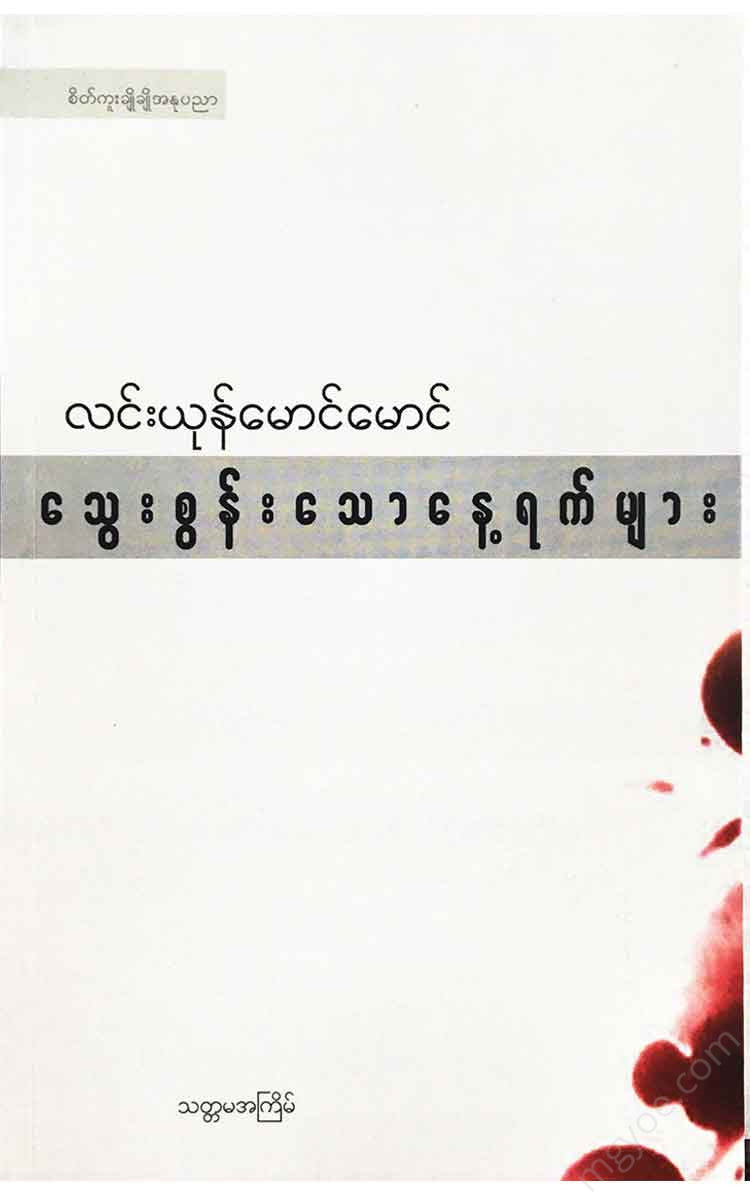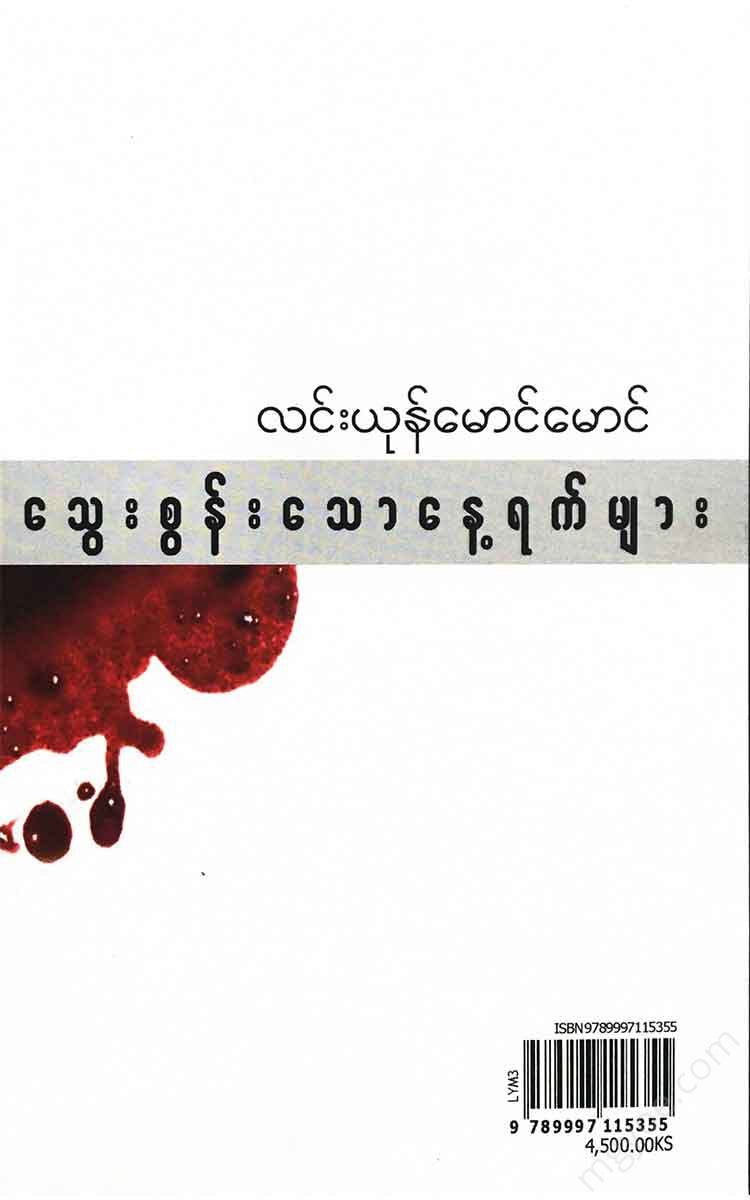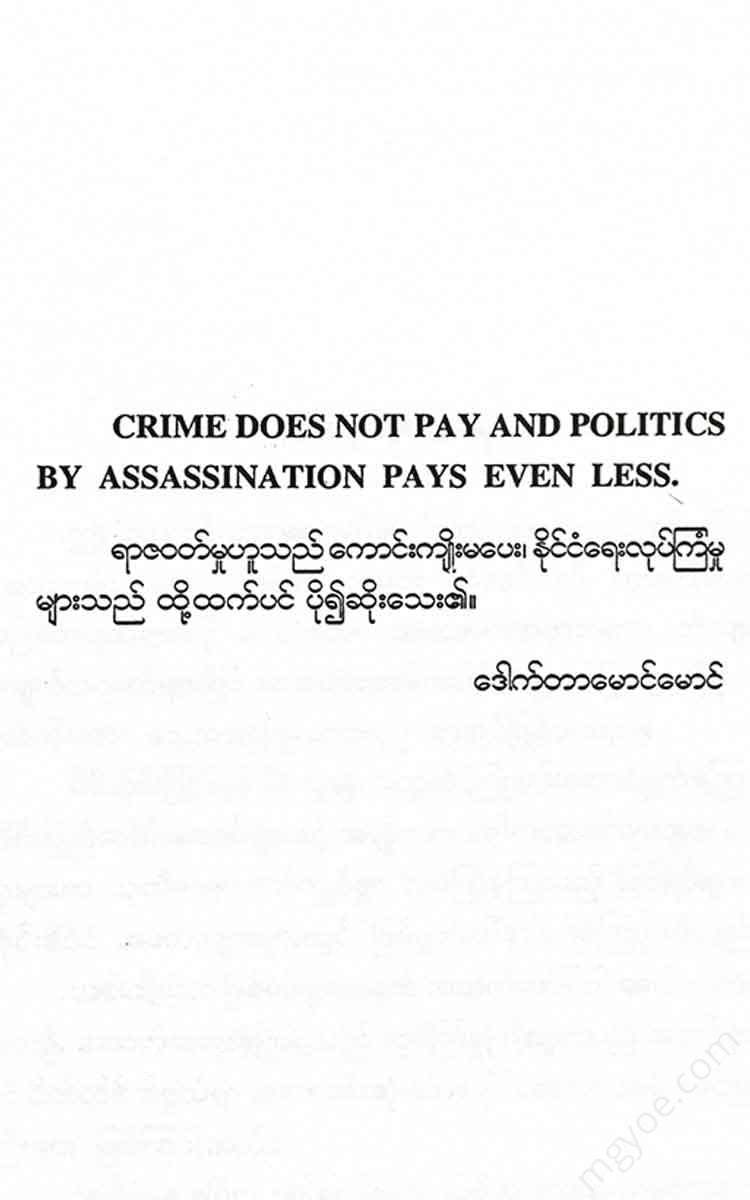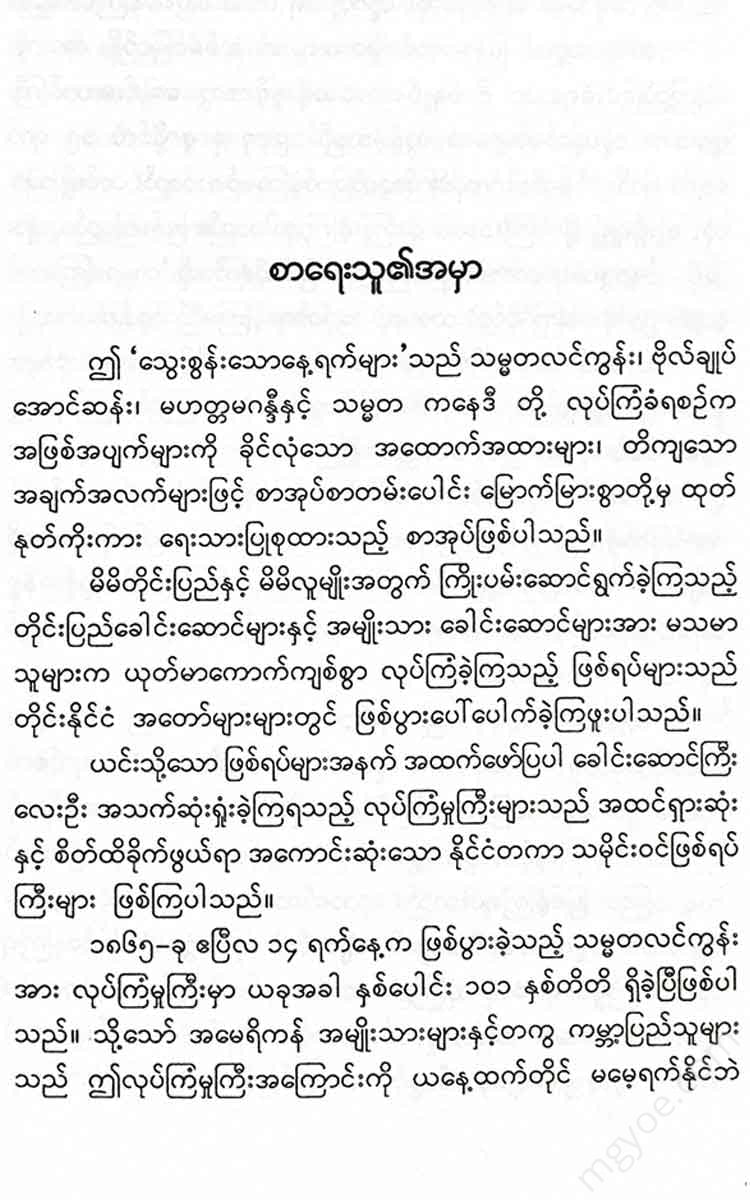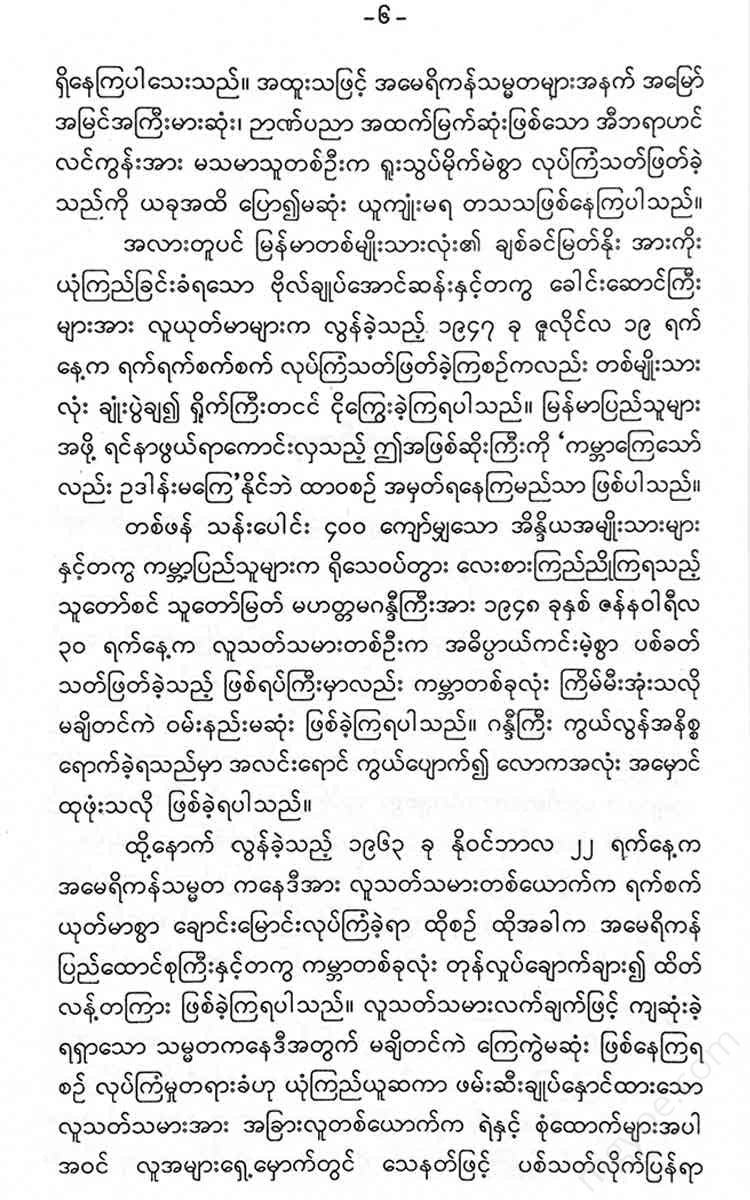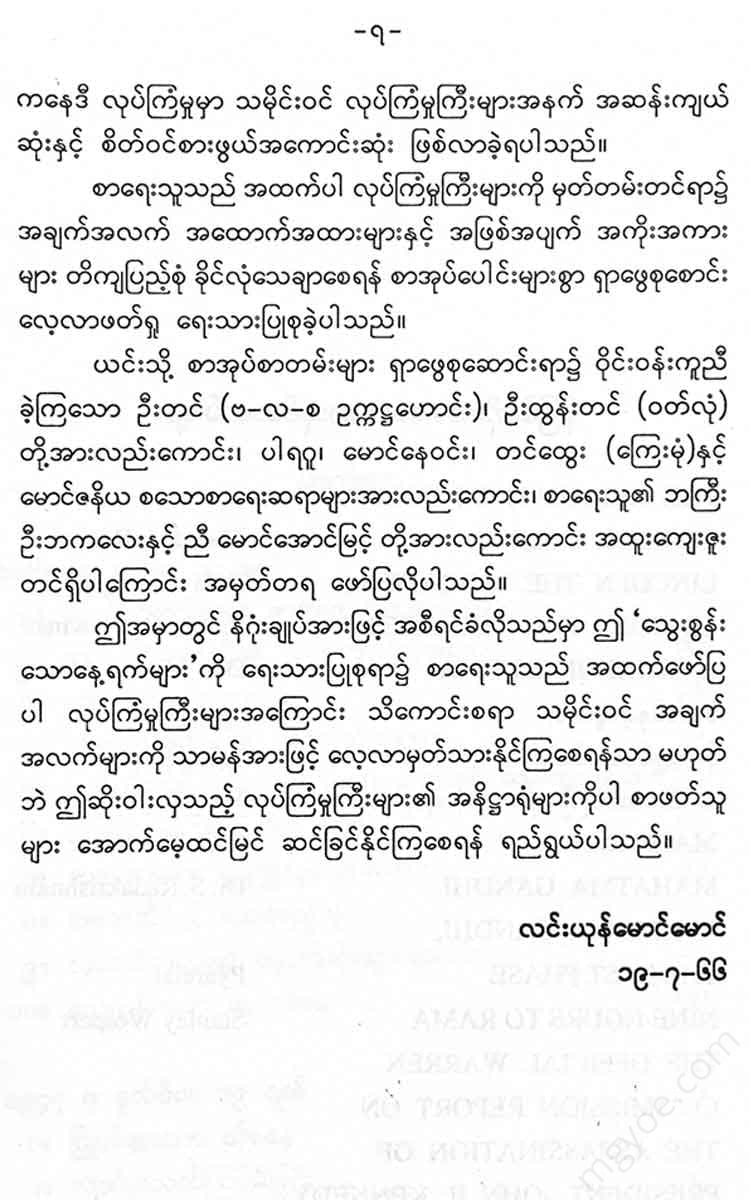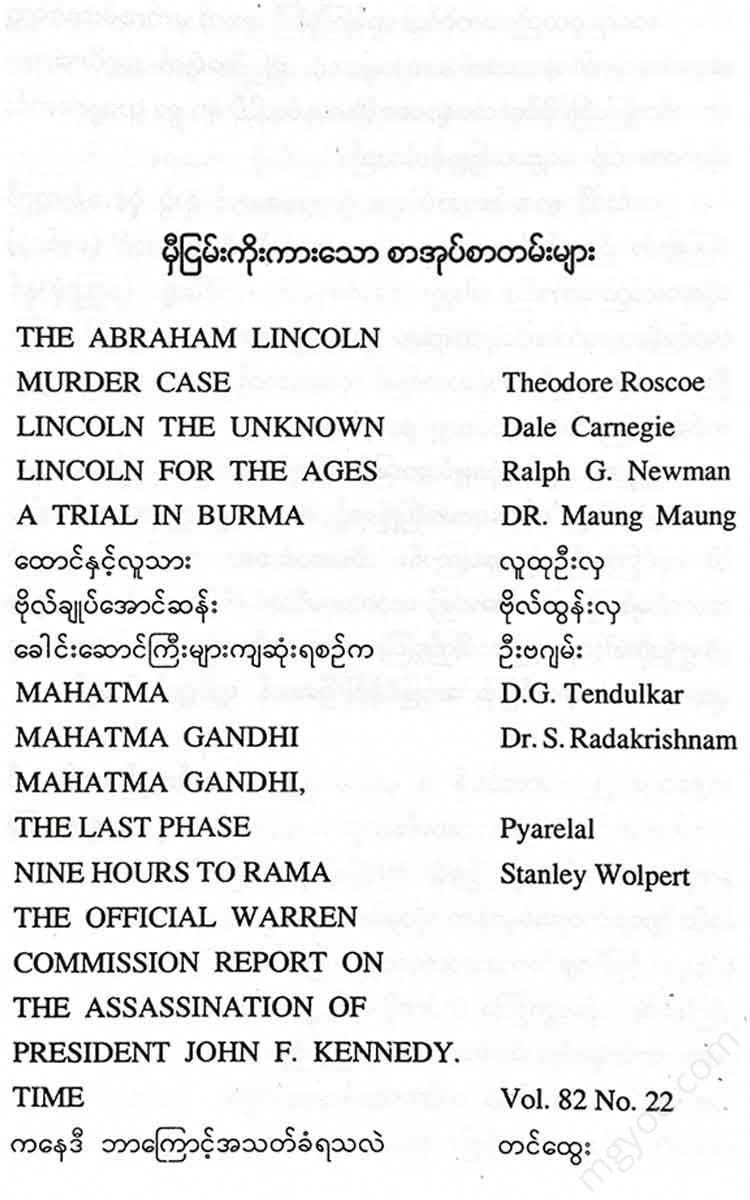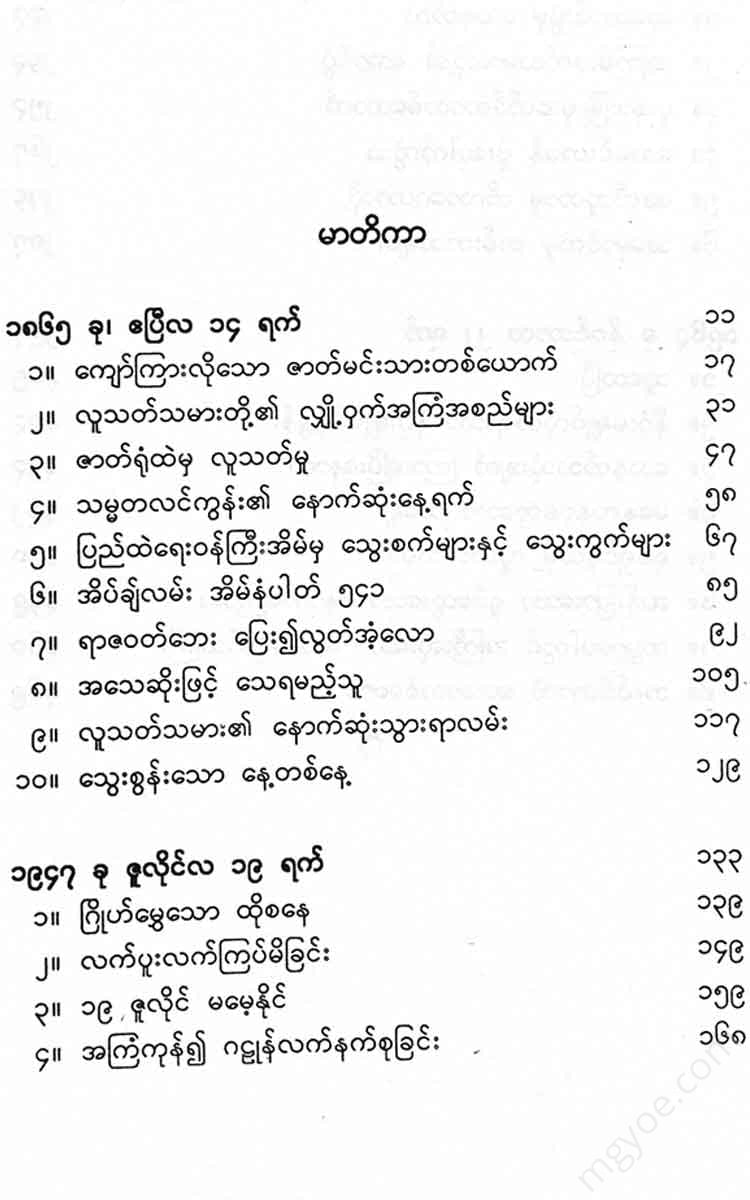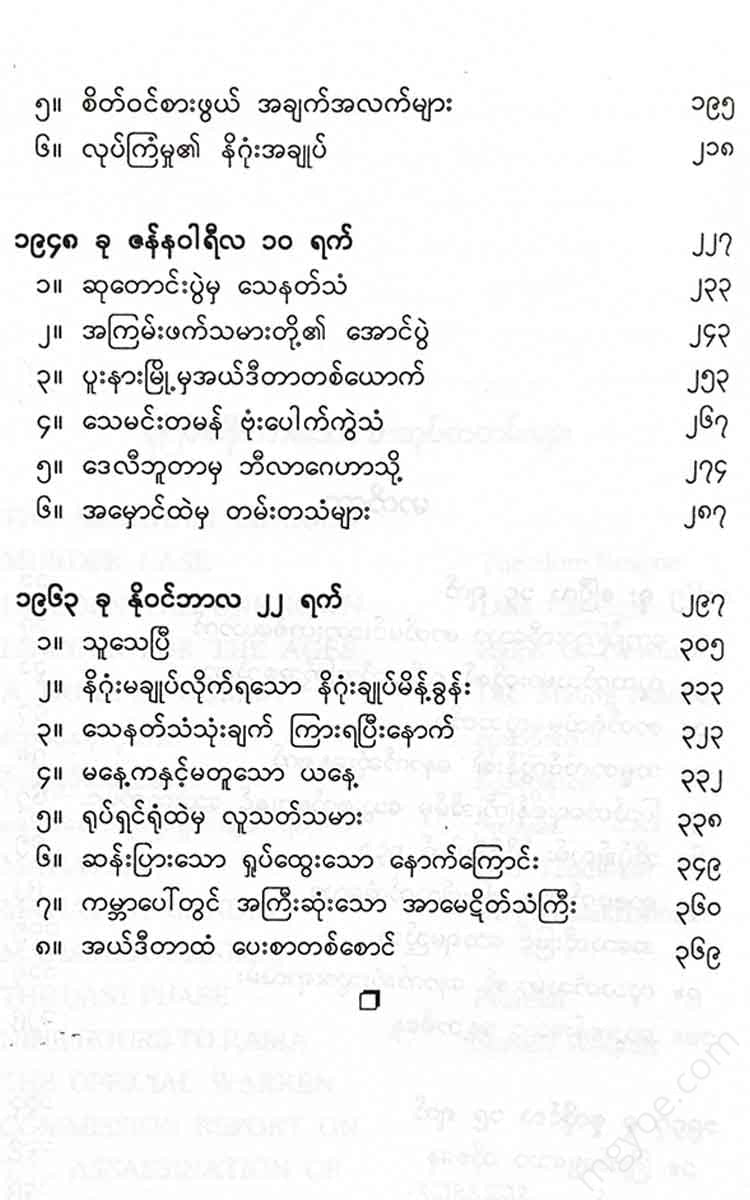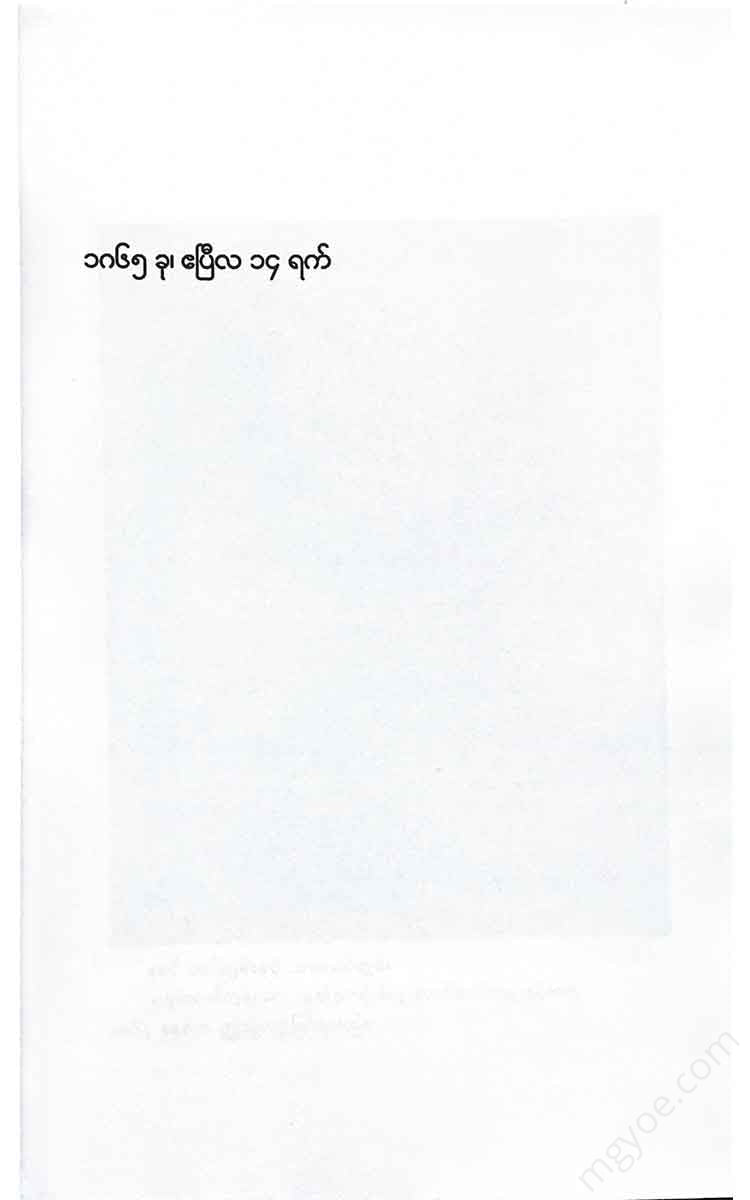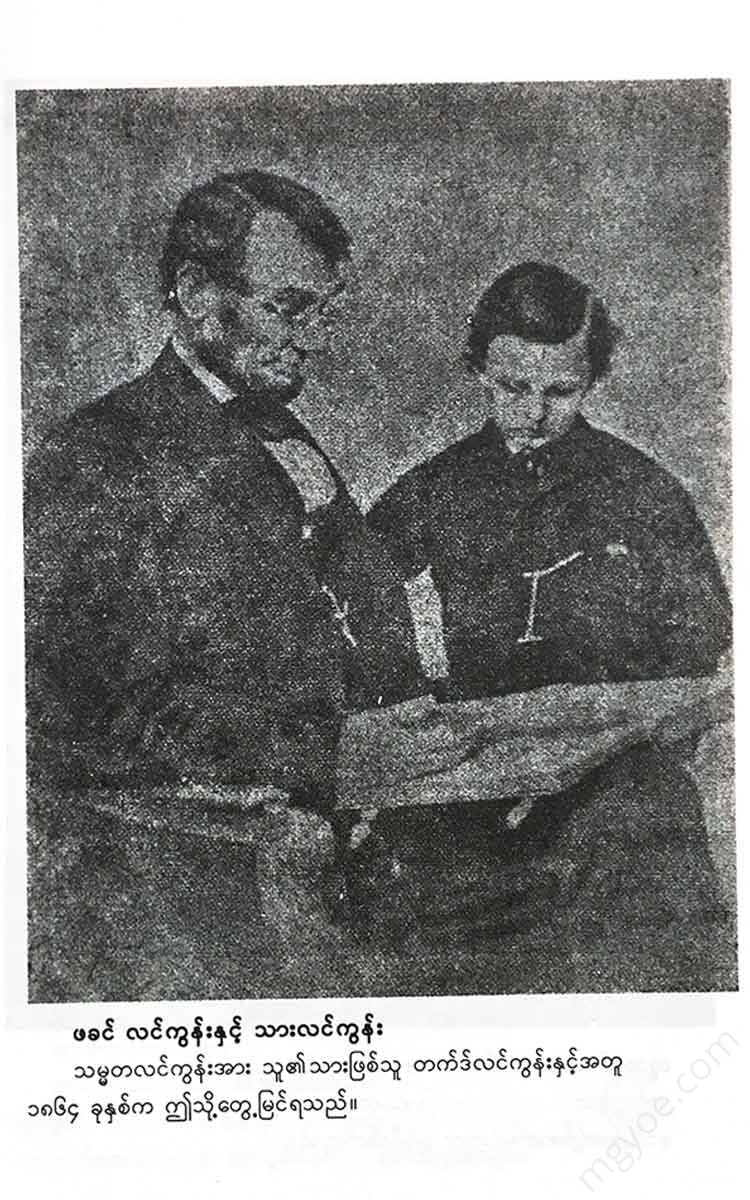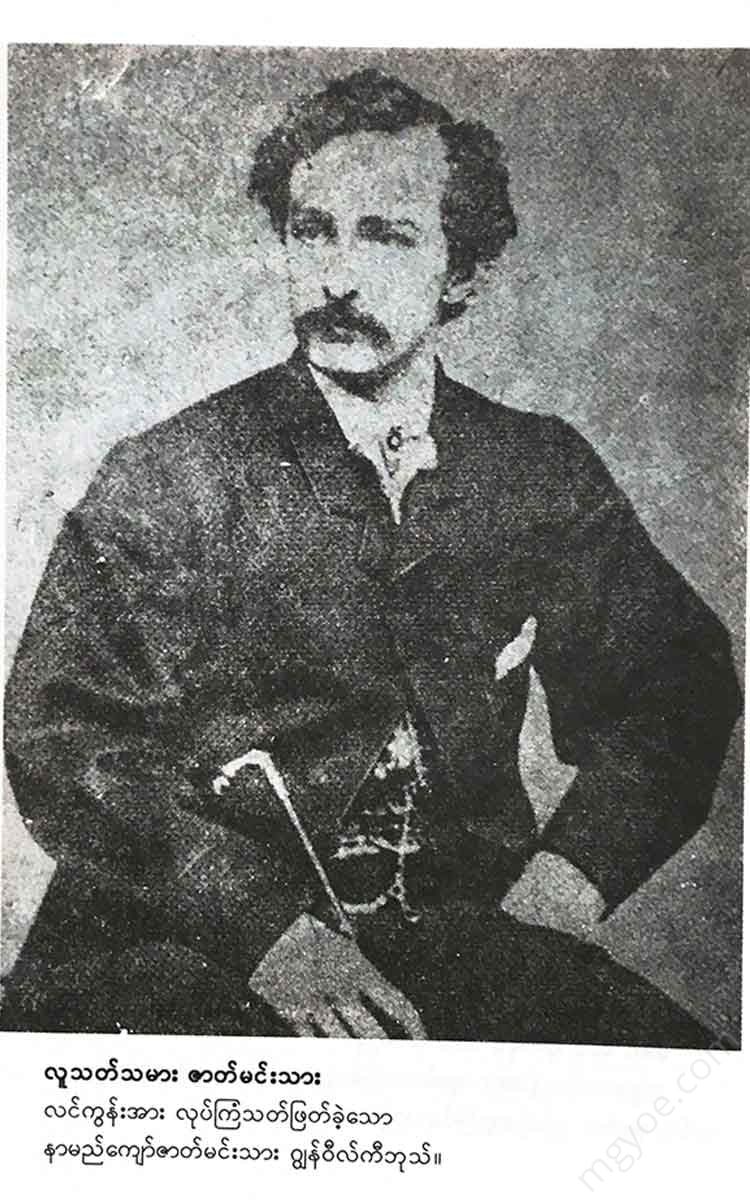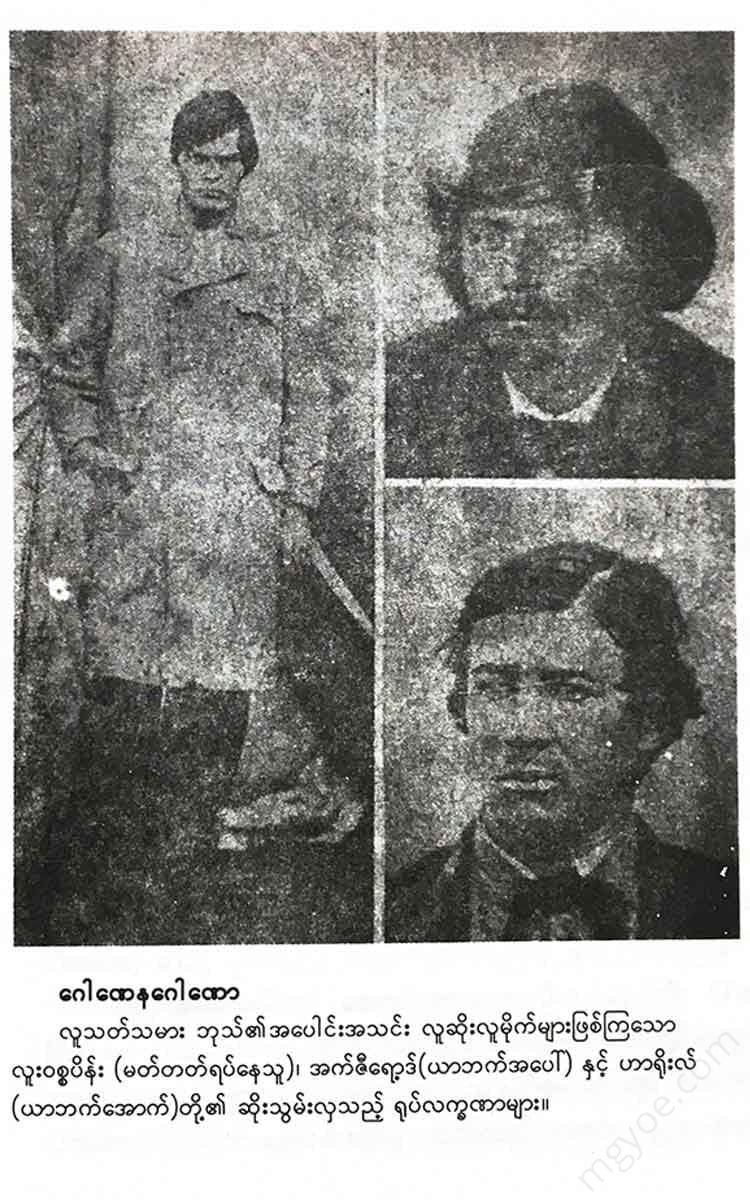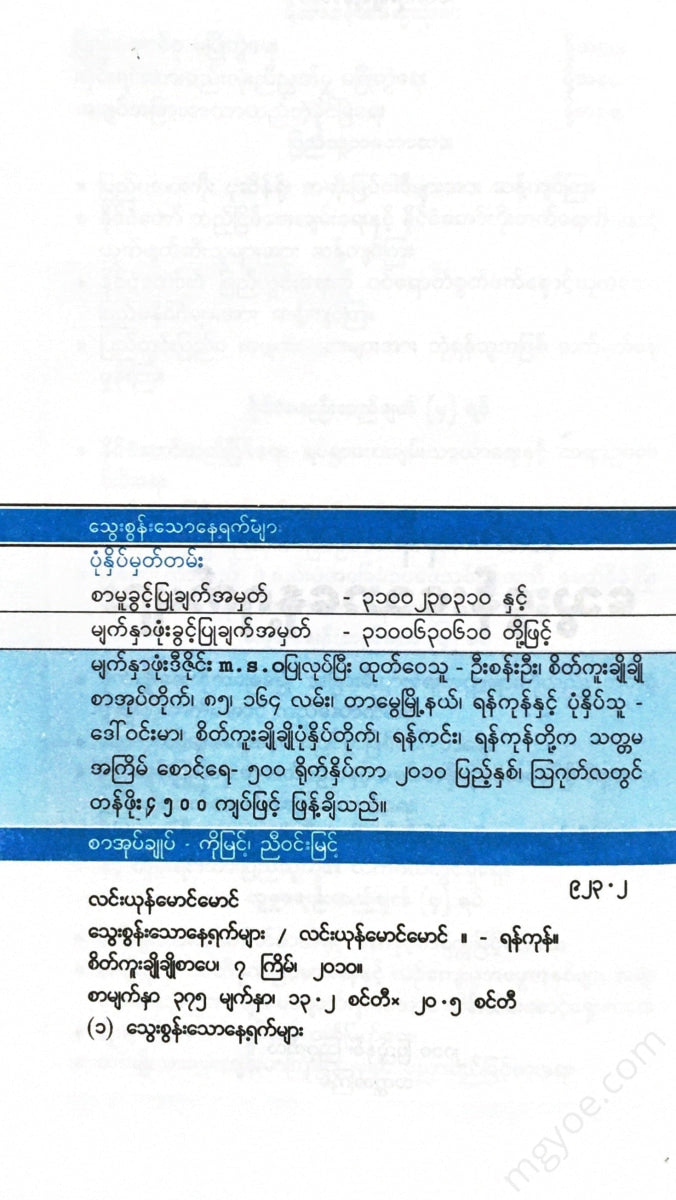စိတ်ကူးချိုချိုစာပေ
Eagle Maung Maung - Bloody Days
Eagle Maung Maung - Bloody Days
Couldn't load pickup availability
April 14, 1865.
This day is Friday. This Friday is not just any ordinary Friday. It is a special day for Christians, “Good Friday.”
It was almost noon, and Washington, the capital of the United States, was shining brightly under the warm sun.
At that moment, a man of about 26 years old, with a handsome appearance and a well-proportioned body, dressed neatly and smartly in long trousers, a coat, and a jacket, was seen walking towards Ford's Theatre in Washington.
His wavy hair, which rose in waves from under the top hat he wore on his head, his moustache, and his graceful gait, which carried a precious silver-studded cane in his right hand, made it clear from a distance that he was not an ordinary citizen but an actor.
That's right. He is a very famous and popular actor in the American theater world.
His name was John Wilkes Booth.
He still can't bring himself to be famous as an actor. He still wants to be more famous. He still wants to be famous. If possible, he wants to be famous so that he can't be compared to anyone else.
So he was trying to make himself the most famous and prominent figure in the entire United States.
His plan, which he had been trying to achieve in this way, was none other than the evil plan to assassinate Abraham Lincoln, the President of the United States.
He had been trying to devise a wicked plan for a long time. But the timing was not right for him, and his plans had failed in the past.
Today, however, he had gone to a barbershop to get his hair cut, and then, as usual, he had walked to Ford's Theatre to collect the letters of praise and appreciation that had come to him from his friends and his "passionate" fans. Here, his most sinister plan had come to fruition, this very day.
"The handsomest man in Washington is here, huh?"
As soon as Booth arrived at the theater entrance, the theater's manager, Harry Ford, greeted Booth warmly, saying the above words loudly enough for the nearby cast to hear.
The cast members also greeted the Buddha, who was already familiar to them, with smiles and gestures.
Booth took the letters addressed to him from Manager Ford's office and, as usual, made a careless turn.
However, at this very moment, he suddenly heard a message that would allow him to put his dastardly plan into practice.
"What's up, sir? Do you have to get the State Box ready tonight?"
Just as Booth was about to turn and leave the theater, the theater manager approached Manager Ford and asked the following question.
The manager nodded back to the carpenter.
Suddenly hearing the words spoken by the carpenter and the manager, Booth suddenly thought of something like a flash in his head.
He stopped in his tracks and, thinking about what was going on in his head, walked up to the manager, his mouth suddenly asking.
"What, why don't you come see Lincoln tonight? Yes, why don't you watch "Our American Brothers"?"
“Our American Cousin” was the name of the play that would be performed that evening.
"Yes. I'm going to see President Lincoln tonight."
Manager Ford answered Booth's question. Ford's answer sounded a little boastful, a little proud.
It is also reasonable to think so. Isn't it an honor to have the greatest president of the United States come to his theater to support him? Moreover, the comedy "We, Our Fellow Americans" has become boring and the attendance has decreased due to repeated performances. Ford calculated that by having President Lincoln himself come to support this play, he would somehow attract the attention of the audience and make it more famous and popular.
Booth was thrilled to learn that the day he had been waiting for, when Ford had assured him that President Lincoln would come to see the show tonight, had arrived precisely on time.
Haven't you been waiting for this good day, this good spot, for a long time?
But Booth, who had become famous and popular for his good manners, was so happy that he swallowed down the joy that was rising in his heart. As if Ford did not think that Lincoln would come to see the play was news of interest to him, he replied with a polite, polite tone, not even exclamation, "Oh, yes?" and left the theater.
Then he stood on the steps of the theater entrance, calmly reading the letters he had brought from the manager's office, one by one.
At this moment, Booth was reading the black and white letters on the paper, but the contents of the letter did not enter his mind, only the plans for how to assassinate President Lincoln, who was coming to see the show tonight. It was now almost one o'clock after 12 noon. In about 9 or 10 hours, the plans he was currently plotting in his mind would begin to come true one by one.
Booth, as if reading these letters one by one on the steps of the theater, was quietly plotting the "great conspiracy" that would shock not only the entire United States but also the entire world.
Booth's demeanor was so calm and "silent" that the cast members, who were busy with their own work in the theater, were not at all suspicious of Booth's behavior.
After all, wasn't Booth a famous actor who could act in a stage performance in front of an audience of about nine hundred thousand people, let alone nine or ten people like this?
After a while, Booth had "read" almost all the letters.
The situation had changed, so he had inadvertently re-entered the theater. The cast and theater workers saw Booth re-enter the theater, but as usual, they were entering and leaving every day, so no one was curious and just ignored him.
When they returned to the theater, they were already rehearsing a scene from the play “Our American Brothers” that was to be performed that night. The play had been performed many times before, but tonight, the president himself would be there to watch, so they were rehearsing it again, as the director had ordered, to make sure it was flawless.
Booth, without losing his composure, glanced at the workers in the theater or the actors performing on stage, and then climbed the stairs on the left to the upper floor, where he reached the "special row." From there, he walked along a circular corridor to the "State Auditorium."
This "National Auditorium" is the auditorium where President Lincoln himself will be visiting tonight.
There was no one in the auditorium.
Booth sat down in a nearby chair. He glanced briefly at the performers on the stage below. Then he peered around the small auditorium, taking a mental picture of the surroundings.
After a few minutes, he calmly descended from the stage and calmly exited the theater.
Booth left the theater calmly and composedly, but as soon as he reached the street in front of the theater, he lost his composure. He seemed to be getting nervous about the “great plot” that would be put into action in a few hours.
Along the way, he saw people who knew him, who knew him as a famous actor. Some greeted him warmly. Others bowed in a nonchalant manner.
Booth was in a state of great excitement, and he seemed to greet everyone who greeted him with more respect than usual. He began to greet some old acquaintances and women from a distance, waving one hand and touching the brim of his hat with his hand, trying to hide his inner discomfort.
Despite his nervous excitement, Booth, as he had planned and planned on the steps of the theater, decided to go somewhere in the city according to his first plan.
